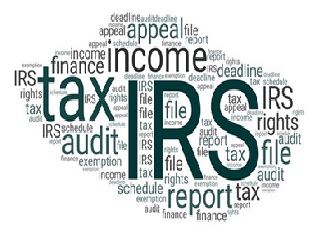
Taxes are a part and parcel of our employed lives, and we must pay them one way or the other. If you delay or fail to pay your taxes or file your tax returns on time, the Internal Revenue Service (IRS) will levy penalties on you. This article will help you understand the types of penalties, exemptions, and tips for quashing your tax debt for good.
Types of Penalties
There are four basic kinds of penalties for individuals:
- Failure-to-file penalty: – If you fail to file your tax returns before the deadline, the IRS charges this penalty based on unpaid taxes.
- Failure-to-pay penalty: – This penalty applies if you are unable to pay the tax amount as specified in your tax returns in time.
- Failure to pay proper estimated tax: – If you do not pay sufficient estimated taxes, the IRS will charge you a nominal penalty on a case-by-case basis.
- Dishonored check: – If your payment results in an unsuccessful transaction, the IRS charges a 2% penalty on a payment amount of $1,250 or more and $25 on the amount less than $1,250.
You can find out more about how the fines are calculated for each type of penalty on the IRS’s website.
Additional Penalties for Filing Inaccurate Tax Returns

Image via Flickr by Ben Taylor55
The IRS performs tax audits based on two criteria: random selection based on filing trends derived from statistical formulae and the detection of issues in a tax return.
If you make mistakes while filing your tax returns, you can let the IRS know during an audit. However, if you deliberately file fraudulent reports to evade taxes, the IRS might issue notices of claim on your property, house, car, bank accounts, or any personal belongings. The IRS can also seize your property, cancel your refunds, issue charge sheets of tax evasion, and revoke your passport. Moreover, fraudulent practices attract criminal investigation from the IRS and may result in imprisonment of up to five years.
Does the IRS Provide Relief From Penalties?
The IRS provides certain exemptions in case of a reasonable cause that prevents you from filing the returns. Furthermore, if you are in the armed forces, serving in combat zones, a victim of a disaster, or are working abroad, you must ask for an extension within a stipulated period. Usually, the IRS is considerate of situations beyond your control, but exemptions are decided on a case-by-case basis.
How to Get Rid of Your Tax Debt
If you prove your innocence to the IRS, the agency is willing to work with you. The IRS will still deduct the tax, penalty, and compounded interest. However, the IRS can reduce the tax debt or stall collections until you can afford to make payments. If you cannot pay any taxes, you can file for bankruptcy to eliminate your tax debt entirely. In any case, a renowned tax consultancy service can help you choose the best possible option.
It is important that you pay your taxes and send in your tax returns on time or notify the IRS of any difficulties in advance. Nevertheless, if you find yourself incapable of doing so due to a genuine reason, these handy tips should help you avoid attracting penal action or criminal charges.
Leave a Reply